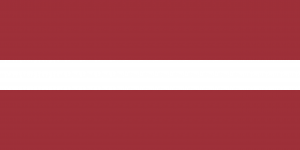Language/Standard-latvian/Culture/Latvian-holidays-and-celebrations
| ◀️ Family and relationships — Previous Lesson | Next Lesson — Latvian cuisine ▶️ |
As a Latvian language teacher, I believe that understanding a country's culture and traditions is an essential part of learning its language. In this lesson, we will explore some of the most important national and religious holidays in Latvia and how they are celebrated. Latvia is a country that is proud of its heritage, and as such, its holidays and celebrations showcase its unique culture and identity.
Take some time to dive into these other pages after completing this lesson: Latvian cities and regions & Modern politics and society.
National Holidays
Independence day
Latvia celebrates its Independence Day on November 18th every year. This day marks the signing of the declaration of independence from Soviet Russia in 1918. It is a public holiday, and the celebrations usually include a military parade, public speeches, and cultural events.
Līgo Day and Jāņi festival
Līgo Day, also known as St. John's Eve, is a pre-Christian celebration of the summer solstice in Latvia. It takes place on June 23rd, and it is a day when people gather to sing and dance around bonfires. The celebrations continue on Jāņi Day, June 24th, which is a public holiday in Latvia. On this day, people traditionally go to the countryside to pick flowers, drink beer, and eat traditional Latvian foods such as cheese, bacon, and caraway seeds.
Latvian Song and Dance Festival
The Latvian Song and Dance Festival is one of the country's most important cultural events. It takes place every five years in Riga, and it attracts thousands of participants from all over Latvia, as well as from Latvian communities around the world. The event celebrates Latvian folk traditions and features performances of traditional songs and dances by large choirs and dance groups.
Religious Holidays
Easter
Easter is an important religious holiday in Latvia, as it is in many other Christian countries. On the Saturday before Easter, Latvians decorate eggs using traditional methods such as wax-resist dyeing. On Easter Sunday, people attend church services, and families gather for a festive meal that usually includes traditional Latvian Easter bread and a sweet cheese dessert called pasha.
Christmas
Christmas is another significant religious holiday in Latvia. In the weeks leading up to Christmas, people often go to Christmas markets to buy traditional foods and gifts. On Christmas Eve, which is called "Ziemassvētku vakars" in Latvian, families gather for a festive meal, which usually includes roasted pork, potatoes, and sauerkraut. After dinner, they exchange gifts and sing Christmas carols.
Vocabulary
Here is some vocabulary related to Latvian holidays and celebrations:
| Standard Latvian | Pronunciation | English |
|---|---|---|
| Atvaļinājums | ɑt.vɑ.ɫi.nɑ.jums | Holiday, vacation |
| Svinēt | svi.nɛːt | To celebrate |
| Valsts svētki | vɑlsts sveːtki | National holiday |
| Lielupes diena | lie.lu.pɛs diɛnɑ | Summer solstice |
| Līgo | liːɡo | To celebrate summer solstice |
| Jāņi | jaːɲiː | St. John's Day, celebrated during summer solstice |
| Dzimšanas diena | dzim.ʃɑ.nɑs diɛnɑ | Birthday |
| Ziemassvētki | ziɛ.mɑs.sveːtki | Christmas (plural) |
I hope this lesson gave you an idea of the rich cultural heritage of Latvia and its unique celebrations. Celebrations are vivid and essential markers of Latvian identity, and approaching them is an excellent way to begin your exploration of the language. Join us for the next lesson where we will explore Latvian cuisine and traditional dishes.
Other Lessons
- Latvian nature and national parks
- Latvia Timeline
- Latvian art and architecture
- Latvian cuisine
- Latvian cities and regions
- Latvian folklore and crafts
- Latvian music and dance traditions
- Latvian language and literature
- Popular sports and events
| ◀️ Family and relationships — Previous Lesson | Next Lesson — Latvian cuisine ▶️ |

